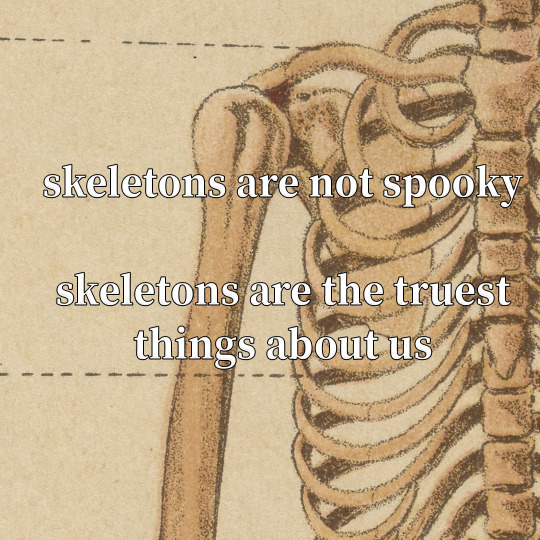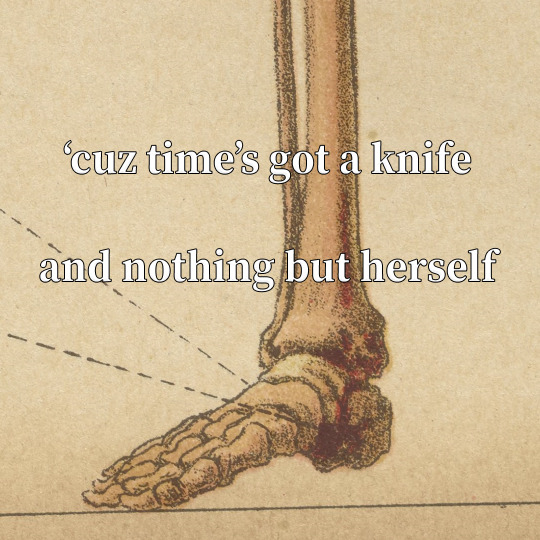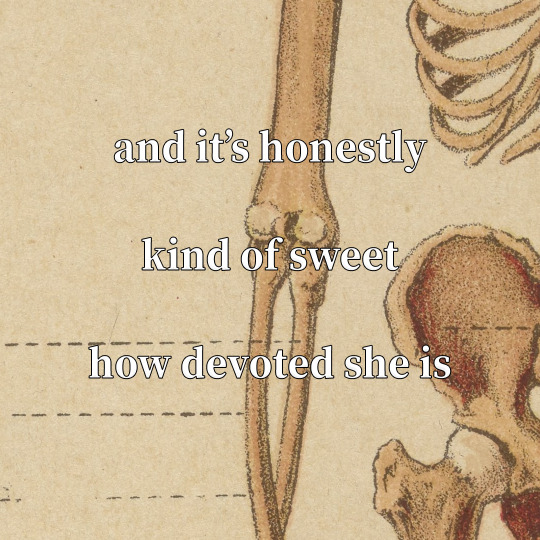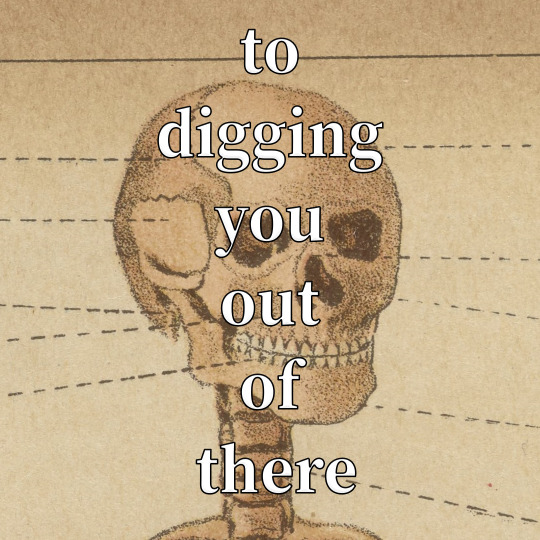Don't wanna be here? Send us removal request.
Text

Reading more trans authors! This was an interesting one — I think it fails as a sci-fi novel¹, but mostly succeeds as literary fiction².
¹ (To be fair, it wasn't trying all that hard to be. The premise feels like classic dystopian sci-fi – a tyrannical government forces people to have extra shadows in lieu of prison time, making Shadesters a despised underclass – but it ends up functioning more like magical realism. I can happily accept a world in which something so metaphorical is happening literally, but what bothered me is that none of the characters with extra shadows had actually done anything bad enough to meaningfully test the reader's allegiances! Given the potency of the shadows metaphor, there was room here to do some really interesting stuff around abolitionism and anti-carcerality, but I feel like it kinda chickened out on that front?)
² (The writing captures the bleak disjunctive hollowness of grief *very* well. The narrator loses her wife in childbirth, and spends a lot of time bleakly circling the drain of her own mind in a way that was tough to read but very real. And the shell-shocked queer single parenthood that follows is wonderfully tender. "I finally understand what all the fuss is about: a tiny someone is predisposed to trust you and you have the chance to prove them right." I mean 😭)
It may not hang together perfectly as a novel, but there were an ton of individual sentences that made me go "oof", and that's an important metric too. Cool book; many oofs.
5 notes
·
View notes
Text

A fascinating, frustrating, and absurdly endearing book. This should be absolutely nobody's first experience with Alison Bechdel, because it's a palimpsest of references to her past work, structured by the (for me, incredibly moving) decision to depict herself as remaining friends with the characters from Dykes To Watch Out For, who in Spent are as real as Alison, have aged alongside her, and who I teared up at seeing again like old friends.
Those are the parts that really worked for me. There was plenty that didn't, like the book's ostensible focus on money and capitalism, which amounted to little more than a frustrating double-exposure to Alison's irritatingly privileged finances combined with her unearned sense that she can instruct people how to spend more ethically (while receiving piles of Amazon parcels). To her credit, Bechdel has always been unafraid to present herself as annoying and hypocritical! And the self-righteousness is soaked with enough self-mockery that it never caught on my throat too much. (Still, I didn't know it was even possible to spend $280 USD per month on streaming services ...)
There's honestly so much more I could write about – I was especially moved and maddened by what happens with Stuart, the non-transitioning trans lesbian who still somehow nobody recognises as trans – but I might have to tackle that in longer form elsewhere. Ultimately, this is more Alison Bechdel, so I did love it. Her skill as a cartoonist makes virtually every panel a delight (cats and goats gambolling in so many of the margins), and the odd metafictional qualities were largely wonderful. So I'd recommend it, but only after reading Dykes to Watch Out For in full ... and Fun Home ... and possibly everything else she's ever written?
2 notes
·
View notes
Text

"In general, the women of classical literature are a species given to disorderly and uncontrolled outflows of sound – to shrieking, wailing, sobbing, shrill lament, loud laughter, screams of pain or of pleasure and eruptions of raw emotions in general [...] As if the entire female gender were a kind of collective bad memory of unspeakable things"
2 notes
·
View notes
Text

A few years ago, a dear friend sent me a pre-publication proof of 'Stay True'. I tried to read it then, but between the awkwardness of reading on a desktop PC and the huge bothersome 'PROOF' watermarked across every page, I couldn't quite hack it. I vowed to return to it one day and read it properly, and I'm glad I did.
It "might hit you a little harder than most," my friend had said, and she was absolutely right. So many painfully relatable nuggets about Hua constructing himself as a young adult through his relationship to music and writing, trying to create a fluttering display of the exact right shades of earnestness and irony to attract the kind of person he was desperate to become ... only for that to all be thrown into a blender when his friend was unexpectedly killed, and nothing made sense in the same way anymore.
Everything in this book about grief is deeply real – especially the parts that aren't really about grief, but guilt. I understand (or feel as though I understand) exactly the impulses that led to the writing of this book: wanting to make sure you remember all the details about them, wanting to not have their death be the only thing people remember, wanting to arrange words into an incantation against meaninglessness. Wanting their life to outweigh their death, and so piling as many specific memories as you can onto the 'life' side of the scale. This is the basic task of eulogy, and 'Stay True' is a well-disguised and heartbreakingly tender eulogy. I now miss a guy I never met, which means that it worked. I now feel a little less alone in my own grief, which means that I'm still working, despite it all. We're still out here, working at it.
3 notes
·
View notes
Text

(Artwork by HagstoneArt)
As I grimly read the text of Trump's flurry of executive orders targeting trans people – ordering trans women to be detained in men's prisons, banning puberty blockers and HRT for anyone under 19, barring trans people from serving in the military, and declaring by fiat that everybody is and can only be the sex they were "at conception" – I keep thinking: it's going to be a long winter.
The last decade has been a pretty unprecedented period of visibility and progress for trans people. Between LGBT inclusion becoming legally protected and culturally default (at least in some spheres), the relaxing of the gatekeeping around medical transition, trans characters popping up in mainstream TV shows – we've never been closer to a collective understanding that, "Oh yeah, that's just a way that a person can be."
But these windows in the culture open and they can close.
Greater visibility has been met with intense reactionary backlash. We can hope it's a "two steps forward, one step back" situation, but we are right in the middle of a big, destabilising, lurching step back. These executive orders are a clear and focused attempt to make there be fewer of us: to choke off the paths that can lead to trans existence, and to make life as a trans person hard enough that as many of us as possible 'self-deport' back into the closet. The actual implementation of the orders will be messy and partial – US states hold a lot of the actual power here, for better and worse – but the eliminationist intent could not be clearer. "Being trans is not an okay thing to be, and we will stamp it out." That is plainly their goal.
This period of dominant reactionary backlash will require more of our allies than has been asked to this point. In liberal milieus at least, it's been relatively easy to be 'tolerant' of transness when the default cultural assumption is that you should be so. But now you will be called on to actively defend us – to oppose the stripping-away of our rights, to refuse to accept our dehumanisation and demonisation, and to affirm the right to transition as an active good in the world – and that will require a different mettle.
(I'm writing from Australia, and make no mistake: the anti-trans backlash is off to the races here too. Australia has a humiliating tendency to toddle after Daddy America in virtually all areas, and Australian conservatives are champing at the bit to prove to their American counterparts just how well they too can humiliate the degenerates and suppress the contagion. The Queensland government just announced that they're halting the prescription of puberty blockers and HRT for those under 18, 'pending government review'. Underage gender-affirming care will be their first and most useful wedge, but as the breadth of the American executive orders shows: there are so many other way they want to hurt us and bully us and squeeze us out of existence.)
This is all going to get worse before it gets better. We're in the lurch, and whether we get left there is yet to be decided. How much of this cruel anti-trans mania reaches us will come down to how good of an umbrella we can make, collectively, with our interlaced hands and effort.
Please be on our side.
5 notes
·
View notes
Text
With the sad news of David Lynch's death, I was reminded of this interview from 2023 where he talked about Angelo Badalamenti's passing. There's a childlike straightforwardness to the way Lynch talked about grief – "I just don't see why people have to die" – that took refuge somewhere inside me, and I try to keep it safe and comfortable and cared-for. So long, David; I hope it helped.
*
"DL: We were like brothers, I just love Angelo, I just love him. And when he passed over, went to the other side, it struck me harder than – so many people have died that I've worked with, I miss every one of them, and I just don't see why people have to die. But Angelo, it really hit me. I'm not going to be able to call Angelo on the phone, I'm not going to be able to hear his voice anymore, I'm not going to be able to work with him. All this music that's in him, it's not going to come out. It's just horrible.
MS: I've noticed that all the way through this conversation David, you've referred to him in the present tense.
DL: You have to keep Angelo alive. I believe life is a continuum, and that no one really dies, they just drop their physical body and we'll all meet again, like the song says. It's sad but it's not devastating if you think like that. Otherwise I don't see how anybody could ever, once they see someone die, that they'd just disappear forever and that's what we're all bound to do. I'm sorry but it just doesn't make any sense, it's a continuum, and we're all going to be fine at the end of the story."
11 notes
·
View notes
Text
(Mostly putting this here to keep track of it for myself) – the books I read in 2024:
FICTION:
Jen Beagin - Big Swiss
Alice Robinson - The Glad Shout
Miranda July - All Fours
James Frankie Thomas – Idlewild
Monique Wittig - The Lesbian Body
Caoilinn Hughes - The Alternatives
Sally Rooney - Intermezzo
Mary Shelley - Frankenstein
Lydia Davis - Our Strangers
Julian K. Jarboe - Everyone On the Moon Is Essential Personnel
James Baldwin - Giovanni's Room
Samantha Shannon - The Priory of the Orange Tree
Melissa Broder - Milk Fed
NONFICTION:
Jane Ward - The Tragedy of Heterosexuality
Jules Gill-Peterson - A Short History of Transmisogyny
Lee Seong-Bok - Indeterminate Inflorescence: Lectures on Poetry
Rashid Khalidi - The Hundred Years' War on Palestine: A History of Settler Colonialism and Resistance, 1917–2017
Adrienne Rich - Blood, Bread, and Poetry: Selected Prose 1979-1985
Eddie S. Glaude Jr. - In a Shade of Blue: Pragmatism and the Politics of Black America
Virginia Woolf - A Room of One's Own
Monique Wittig - The Straight Mind and Other Essays
MANGA:
Sakaomi Yuzaki - She Loves to Cook and She Loves to Eat (vols. 1-4)
Ryoko Kui - Delicious in Dungeon (volumes 1-14)
Tamifull - How Do We Relationship? (volumes 1-10)
Neji - Beauty and the Beast Girl
Batten - Run Away With Me, Girl (volumes 1-3)
Pageratta - She Becomes A Tree
Takashi Ikeda - The Two of Them Are Pretty Much Like This (Vols. 1-4)
Murata - Catch These Hands! (Vols. 1-4)
Tasuku Kaname - Our Dreams At Dusk (Vols. 1-4)
Akashi - Still Sick (Vols.1-2)
Kuzushiro - The Moon On a Rainy Night (vols. 1-5)
Keigo Shinzo - Hirayasumi (vols. 1-6)
Inui Ayu - Under One Roof Today (vols. 1-2)
Yodokawa - Monthly in the Garden With My Landlord (vols. 1-2)
Inori / Aonoshimo - I'm in Love with the Villainess (vols. 1-5)
Kaoru Mori - A Bride's Story (vols. 1-4)
Arai Sumiko - The Guy She Was Interested In Wasn't A Guy At All (Vols. 1-2)
Takako Shimura - Even Though We're Adults (Vols. 1-8)
Ami Uozumi - Pink Candy Kiss (Vol. 1-2)
COMICS:
Jillian & Mariko Tomaki - Roaming
Max Graves - What Happens Next (start to present)
Brian Chippendale - Ninja
Michelle Perez & Remy Boydell - The Pervert
Khale McHurst - No She's Not My Sister vols 1-5 (& Manic Pixie Dream Girl, & Stone Butch)
Natalia Zajaz - Marion (Vol.1)
Safdar Ahmed - Space Jihad (Vol. 1)
Steven Christie - Good Praxis (Vol. 1)
Aaron Billings - Beatitudes of the Beat: A Mystical Boy Scout Story (Vol. 1)
Joe Sparrow - Homunculus
Margot Ferrick - Yours
Blood & Thunder #2 (ed. Leigh Rigozzi)
Emma Grove - The Third Person
POETRY:
Wisława Szymborska - People on a Bridge
Christina Rossetti - Selected Poems
Lilian Mohin (ed.) - Beautiful Barbarians
Elana Dykwomon - Nothing Will Be As Sweet As The Taste
Izzy Roberts-Orr - Raw Salt
Pooja Mittal Biswas - The Maker of Garlands
e.e. cummings - A Selection of Poems
Grace Paley - Begin Again
*
I'm overall pleased with the amount of reading I did this year. I was working full-time, so I didn't have as much time as I wish I did, but I got into a decent rhythm with it in the last few months especially. In terms of personal trends, I guess I can identify that this was The Year I Went Nuts For Yuri (amassing a huge treasure-trove of beautiful lesbian manga to read on my tablet), The Year I Got Back Into Fun Novels (books like Big Swiss and Milk Fed and Idlewild were such pure sources of pleasure), and The Year I Started Collecting Bloomsbury Classics (of which I've presently read very few, but they look ridiculously lovely on the shelf, and I plan on reading them all eventually).
3 notes
·
View notes
Text


some decisions are so good they make a thousand bad ones not matter
4 notes
·
View notes
Text

Apparently yesterday was International Lesbian Day!! (My feeds are so generally chock-full of lesbians I didn't notice the difference 😅)
This isn't a difficult thing to articulate to other lesbians, but it can be for everyone else: finally being able to love and be loved as a lesbian has been everything to me. Someone recently described me tongue-in-cheek as "more lesbian than you are trans", and honestly I know what they mean! I can imagine being a cis woman and still being essentially me, but not being a lesbian would involve a significantly further throw from the orbit of my soul. Loving women as a woman, and wanting to be loved by women as a woman, is literally the truest and deepest thing I know about myself. There's no knowing 'why'; it's just the magnetic pole pulling everything else together.
I lucked out meeting Lou. The very first date I went on post-transition (nervous and sweaty and prepared for the worst), and I happen to meet this incredible lesbian who experiences me *entirely* as a woman, who adores my body 100% as a woman's body, and who is supremely patient and gentle and expectationless as I get over my anxieties? More than I ever felt was possible. Most of the stories I hear about early-transition dating are nightmares, but thanks to Lou, I've been able to ease into lesbianism like a gorgeous warm bath. Literally the only transphobic hangups in our relationship are the ones that *I've* brought to the table, and that she's helped me get over. She's so wonderful. She's the lesbian I'm celebrating most of all. 💜🧡❤️
Happy International Lesbian Day (for yesterday) to all!! I spent ages getting lost and wandering around in circles and am woefully late to the party, but I'm finally here!!!!!
5 notes
·
View notes
Text

Nine years.
4 notes
·
View notes
Text
Lesbian Inflorescence
For the longest time, I was so cautious and ashamed about reading lesbian stuff. I felt unerringly drawn to it, but I had such a powerful internal prohibition against being an intruder in that space – a shameful interloper sullying it for everyone else – that I mostly avoided it. It's only now, well into my second year of transition, that I feel like those old walls are fully breached, and I'm finally free to read all the deranged lesbian novels and sappy yuri and horny dyke poetry I want.
The amount I want, it turns out, is kind of a lot. Here are some recent favourites.
*

Monique Wittig - The Lesbian Body
This experimental French novel from 1973 hits a high watermark of sapphic insanity that I'm not sure has ever been equalled. Most of it is the narrator and her lover performing surreal erotic surgeries on each other: digging through the viscera and loving each other from the inside out. Long past the point where an ordinary person would be expected to have died, these women endure: grinning and licking each other's brains, spooling small intestines in their hands, always finding more of each other to love. Absolute engulfment.

Sakaomi Yuzaki – She Loves to Cook, and She Loves to Eat
On the other end of the spectrum entirely: the sweetest manga imaginable about two neighbours slowly wending their way into becoming each other's most important person, through the central mechanism of cooking and eating together. Page upon page is devoted to the wordless erotics of Kasuga methodically eating large amounts of food while Nomoto grins at her starry-eyed. They make a refuge for each other from the world, and everything they need is already there. It's so fucking great.
Bonus treat: there's a live-action TV show that's also a complete delight. I watched it through with my girlfriend (always over breakfast, the rule delightfully became), and while it's even slower to build than the comic, it also has gorgeous performances from both leads. You can find video files and fan-made subtitles for season one and season two here, provided by the lovely Furritsubs.

Beautiful Barbarians: Lesbian Feminist Poetry
I'm obsessed with this collection. Published by Onlywomen Press in the UK in 1986, each author is given a photo-bio and at least four poems, and they come to you like a series of sit-down conversations with older wiser women handing you earthenware mugs of tea and instructing you how to pay attention. There are a variety of styles and concerns, but the connecting thread is the aliveness, the nearness, the groundedness. There is breath in all of these lungs, and in yours.

Takashi Ikeda – The Two of Them Are Pretty Much Like This
Another lovely, quiet, slice-of-life yuri manga, with delicate attention to the relationship dynamic between its two leads (already in a relationship and living together), and a lot of lived-in insights into their work as a voice actor and romance writer respectively. I love the way Wako and Sakuma are always touching in this: lovingly flopping over each other, encouragingly patting a head, lazily stroking a thigh. I sent a genuinely ridiculous number of panels from this manga to my girlfriend, all giddily captioned "us!!!" It's gorgeous.
There's one fact about this manga that's kind of odd, and that is that it is – putatively – written by a man, Takashi Ikeda. I've generally avoided yuri written by men (for obvious reasons), but this one struck me immediately as an exception. It was only once I got to Volume 4 that it became clarified for me why. In that book, a new character is introduced: a highschool baseball player who also lives in their building, and who's very nearly the first male character of the entire series. (Whatever others there are are all extremely minor and incidental.) This kid sees Wako and Sakuma out together, mistakenly believing that tall, deep-voiced Sakuma is a trans woman – and not just any trans woman, but one who's pulling it off amazingly, with a cute girlfriend and a loose comfy style and an enviable ease about her – and immediately understands, "Oh God, I want that."
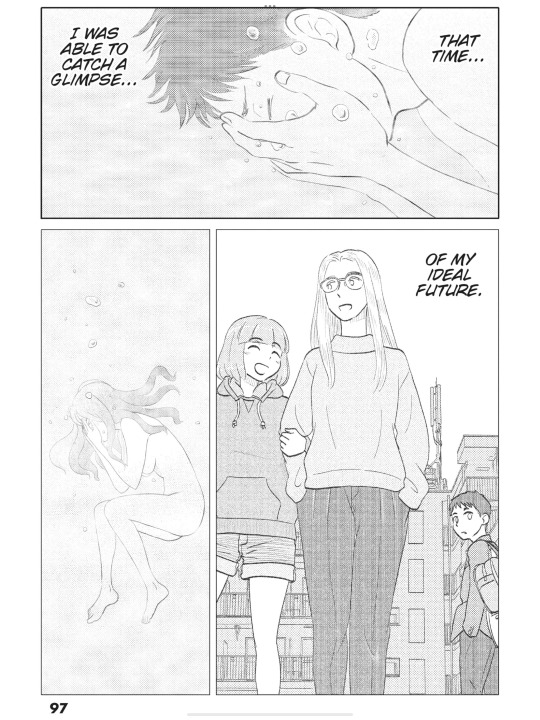
The kid has a bunch of normal egg doubts ("It's not like I hate my body ... and I'm aware that I won't look good in women's clothes ... and there's no way I can be the ace of a weak baseball team if I have a woman's body ..."), but the force of the revelation is obvious. She's a young gay trans woman, and seeing Sakuma and Wako together clarified the vision of that for her. It also, at the same time, clarified for me why this series is able to be so good.
Takashi Ikeda, you can take hormones! If you want to be a woman, you can literally be one! It's a messy process, but it really does work!
I know there are different schools of thought about how rude it is to draw these kinds of inferences about others, but honestly: it just makes so much sense of the whole series. I suspected even before the transfeminine storyline in Volume 4, just because of how lovingly observed Sakuma and Wako's dynamic was and how utterly peripheral men are to their world. (More precisely: I voiced to my girlfriend my suspicion that the author was a closeted trans woman or a cis lesbian using a masculine pen name. Either way, a straight man was off the table!) The introduction of the transfeminine highschooler – and that one devastating page especially: the scrunched-up face in the bath, the lurching memory of that want, the flash of a different body – was just the cherry on top. Politely, babygirl: no cis guy is writing and drawing that. Not like that.
It's silly, but I desperately want to tell this mangaka that I have never met: I promise it's possible. You can have this kind of relationship. You can look at your body with actual affection and pride, because you chose to make it more what you want it to be. I know it seems unfeasible now, when the obstacles are so much nearer and more clarified than the rewards, but once you start: all you'll be able to regret is not having started earlier. You don't even need to go through doctors if you don't want! DIY hormones are available with just a bit of intrepid Googling. Wanting it is the only requirement. This can happen for you.

And I don't say this from the position of someone who's transitioned flawlessly and completely, who's had a panoply of surgeries and is read as a woman in 100% of social situations. I'm in a much clumsier middleground than that. The world at large doesn't quite get it, and likely never will. But where it matters most – that is: in being loved by my girlfriend as a woman, having her experience my body top-to-bottom as a feminine body, and finally living as a lesbian in a way that it's just laughable for anyone to deny – I'm already there. I thought it would take so much longer, but I'm already there. And it honestly makes all that other stuff, all the other difficulties, pale in comparison.

(Drawing of us by Sardonic Tuna, commissioned by my girlfriend and sent to me literally while I was putting the finishing touches on this blog post. Lou I love you so much 😭)
#takashi ikeda see this post and start hormones please#monique wittig#the lesbian body#She Loves to Cook and She Loves to Eat#Sakaomi Yuzaki#beautiful barbarians#lesbian feminist poetry#the two of them are pretty much like this#takashi ikeda#... for now?
10 notes
·
View notes
Text

🥹
@tat_asb_ on twitter
3 notes
·
View notes
Text

there are levels of horny that straight people simply do not know about
(from Monique Wittig's The Lesbian Body, 1973)
5 notes
·
View notes
Text
I reorganised the essays section of my website – now all my trans stuff is in its own chronological section, so one can more easily trace and gape at how long it took me to figure out the thumpingly obvious. 👀
3 notes
·
View notes
Text
the greatest ever fantasy for passive and diffident trans girls

The greatest ever fantasy for passive and diffident trans girls is a 2006 anime called Kashimashi: Girl Meets Girl. This, astonishingly, is the plot:
Hazumu is a very gentle young boy who loves gardening and has a crush on his classmate, Yasuna. Then all of a sudden an alien spaceship crashes into him, completely obliterating his body. The aliens didn't intend to do this – the aliens are nice – so they set about reconstructing the poor human they just squished. They're able to restore Hazumu to perfect health, with just one small alteration: something about the process inadvertently changed Hazumu's sex, and she's now a girl. Head to toe, unmistakably, a girl.
This isn't a secret. The aliens announce to the world whole that they've done this, and request that everyone simply treat Hazumu as a girl now. The rest of the show is mainly about Hazumu adjusting to life as a girl, and indecisively navigating a lesbian love triangle between her crush Yasuna and her tomboyish friend Tomari. But truth be told: there's not actually a lot of 'adjusting' that needs to be done. Hazumu is so plainly happier as a girl. There's no bargaining, no despair, no "oh no, how could this happen to me??" Hazumu just instantly rolls with it. Some others have a little difficulty with the transition, but Hazumu literally never does. She just wants to learn all the girl stuff she didn't know about, spend time with her friends, and live her best life. Which she does.
At Hazumu's age, I had no conscious sense of my own transness. There were all sorts of little signs identifiable in retrospect, but if you'd asked me whether I'd like to have a spaceship crash into my and change my sex, I think I would have been like, "Uhh no thank you?" But I'll tell you this. If a spaceship had crashed into me and changed my sex, I would have really impressed people with how well I took it. The adults in my life would have been stunned at how bravely and cheerfully I dealt with such a shocking blow, how quickly I adjusted to the idea, how naturally I just got on with things. "What an impressively emotionally mature boy," they would have thought – "I mean girl."
This is a curious and funny depth at which transness can be buried: unable to articulate a desire to be the other sex, but being able to deal with suddenly becoming the other sex with remarkable equanimity. One of the things that feels special to me about Kashimashi: Girls Meets Girl as a trans narrative is that it feels pretty clear that if the spaceship crash had never happened, Hazumu just ... would have been a boy. A quiet, gentle, uncomplaining boy, whose relationships with girls were a bit different to others, but other than that: a boy. But as soon as external circumstances intervened and made the decision for her – it's a repeated emphasis that Hazumu is very indecisive – the clarity is instantaneous. Hazumu was always a trans girl; she just only realised it through the gift of a medical transition so instantaneous and perfect that the fantasy of it can make a heart gallop.
This is rare kind of trans story. There are lots of trans people who always knew on some level, but there are also a lot of us who didn’t. It can be overwhelming to think about the contingencies involved with the development of even the thought of transition: the hideous army of unchosen circumstances penning our thoughts in at rifle-point and dictating our social and material possibilities. Kashimashi gives us a trans protagonist who, left to her own devices, probably would have just stayed a boy. She wouldn’t have wanted to put anyone to any trouble. But the story asks: "What if a giant fucking spaceship crushed your body into atoms and accidentally medically transitioned you, huh? Would you accept being a girl then?"
Which, for some of us, is weirdly the right question.
*
The show actually has another trick up its sleeve, and it's a beautiful one. Yasuna, the crush, has always liked Hazumu back, but she's been dealing with a strange and difficult affliction that's made things hard for her. For some reason, she "can't see men". That is: she can see women and girls perfectly well, but when men enter her field of vision, they're just these scary grey blobs. She can register their presence, and sometimes identify them by voice, but she gets them confused all the time, and it's been a lot safer to just try to minimise her contact with boys and men. It makes the world very intimidating to navigate, and is the source of her shyness and reticence.
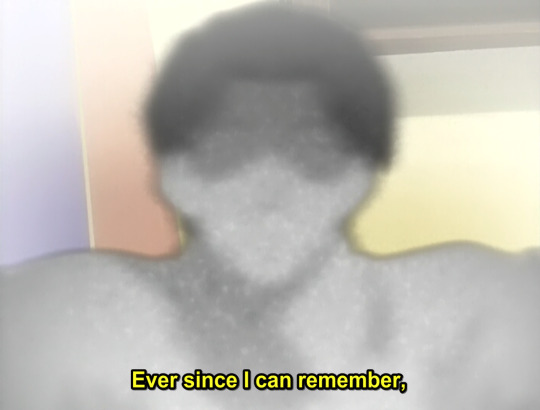
Obviously, "men are basically just grey blobs to me" is not a totally uncommon lesbian experience. But in Yasuna's case it's literalised, and deeply confusing, and you really feel how isolating it would be to attempt to live with it. There is never any attempt to explain Yasuna's condition, even to a goofy anime "aliens did it" degree. It's simply the situation for Yasuna, and she's been dealing with it alone for a long time.
The story feels like it's set up to say: oh, Yasuna didn't used to be able to see Hazumu, but now Hazumu's a girl, so now she can! And they can have a little gay love story! Cute! But that's not what the story does. Instead, the story is emphatically clear on this point:
Yasuna could see Hazumu the entire time.
During a time when every single man and boy on earth appeared to Yasuna as a featureless grey blob, Hazumu was the only 'boy' who was actually alive to her, who had a face, who she could bear to be around. Whatever was responsible for Yasuna's 'condition', magic or illness or curse or contrivance: Hazumu was always exempt. During a time when everyone else saw Hazumu as a boy, Yasuna was the only one who actually saw her.
This is unbearably romantic, but also shockingly affirming. Hazumu was always a girl! There is no non-trans explanation for any of this! The show has no explicit consciousness of this: the word 'trans' is never used, and nobody ever speaks as though anyone's ever gone through anything like this before. The language used (at least in the translated subtitles I had access to) is just "used to be a boy" and "is a girl now". And yet the whole story is the most remarkable trans fantasy, conjuring the most deeply blessed form of transness imaginable. A transness where the whole world knows you used to be a boy, but accepts you wholly as a girl. A transness of instant perfect painless transition, which you didn't even need to choose, but can simply enjoy. A transness actualised by aliens and confirmed by magic.
It's really something.
*
Distasteful post-script:
Would it even be an anime if there wasn't an incredibly gross and off-putting running 'gag' that makes it impossible to recommend without shamefaced caveats? Kashimashi is no exception. After Hazumu's transition, her dad becomes creepily attracted to her, and around once every episode, there's a brief interlude – usually less than 30 seconds, and played entirely for laughs – where he attempts to molest her. He's constantly attempting to bathe with her, take revealing photographs of her, and touch her sexually. These attempts invariably conclude with Hazumu's mother catching him in the act, making a snarly face, and bonking him on the head. Then everyone acts like it didn't happen, and he does it again the next episode.
This is the fucking worst. Everyone hates it. It's an intensely upsetting smear on an otherwise beautiful show. In order to enjoy the things about Kashimashi that are genuinely rare and good, you kinda have to just decide to ignore the dad stuff, and I wouldn't quibble with anyone who thought it not a price worth paying. (I'd really love to go through and – similar to what I did with My Hero Academia – edit together a version that just simply got rid of all of the lecherous dad shit. It wouldn't be hard; you'd only be cutting 20-30 seconds from most episodes, and these moments are never referenced outside of that. Unfortunately, I'm pretty time-poor at the moment, so this'll have to be filed under "something I'd like to do when I have more time". Hopefully at some point I'll be able to. I'd love for more people to see this show, but I also really don't want to expose more people to the world's worst fucking running gag, so being able to give people files with that shit neatly snipped out would be a mercy.)
*
Look, Kashimashi: Girl Meets Girl a silly anime in lots of ways. A lot of the episodes are kinda throwaway, the dad stuff is completely unforgivable, and I personally didn't love the ending (love triangles are annoying). But that core nugget of trans fantasy – what if aliens did it – is so resonant and joyous that I watched every episode enraptured. It's a cis cliche to call trans people "brave" without actually doing anything to make our lives easier, but the wonderful thing about Hazumu's story is that she didn't need to be brave. Honestly, she's kind of a scaredy-cat the whole series! And ruinously indecisive! Relatable queen!!! All of this, coupled with the after-the-fact clarity of her transition – delighting in being a girl only after being able to try it – makes her a trans protagonist I can see myself in to a pretty embarrassing degree.
Sometimes it takes a spaceship crashing into you, y'know?
16 notes
·
View notes
Text
youtube
I know the entire genre of "YouTube video in which a famous person responds to unfavourable reporting about them" is kind of inherently suspect, but I'm honestly wholly convinced by what Hasan lays out here.
When I read the New Yorker piece in September, I thought it was odd – like, everybody knows comedians embellish and streamline and shape their stories for effect, right? Obviously we don't hold them to reportage standards of accuracy? The whole tone and premise of the article was weird – but with the extra context provided here, I now think it's clear that Clare Malone was actively mendacious and dishonest in putting it together. Not only is it imposing standards that no journalist has ever put on a comedian before, but it's also extremely misleading in how it applies those standards. Malone clearly brought this core skepticism about his experiences of racism (which probably feels to her like cool-headed journalist objectivity, but which is obviously, obviously animated by white defensiveness), and skewed and dismissed a lot of evidence she was given so that she could tell the story she wanted to tell – a person of colour exaggerating racism – even when the fact didn't support that.
The whole article looks like a racist axe that Clare Malone had to grind, and honestly the New Yorker should pull it.
#in a more just world this would be Clare Malone's last time writing for a big publication#but honestly knowing the dynamics of how these things work#this will probably only make her more successful#look for her on the Bari Weiss 'dangerous ideas' IDW circuit in short order#ugh#hopefully this gets some traction at least#hasan minhaj#clare malone
67 notes
·
View notes


